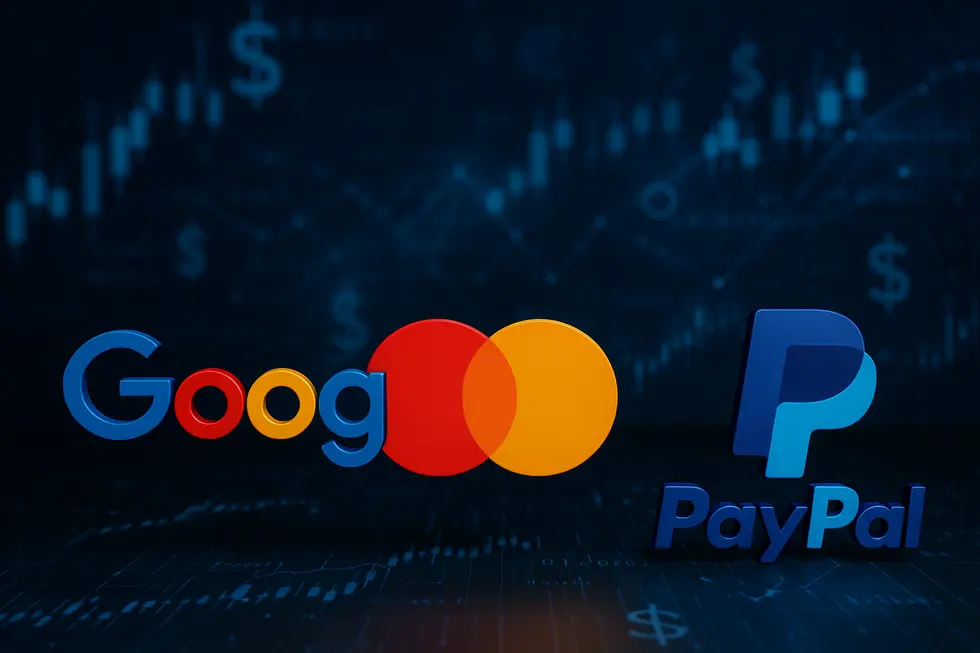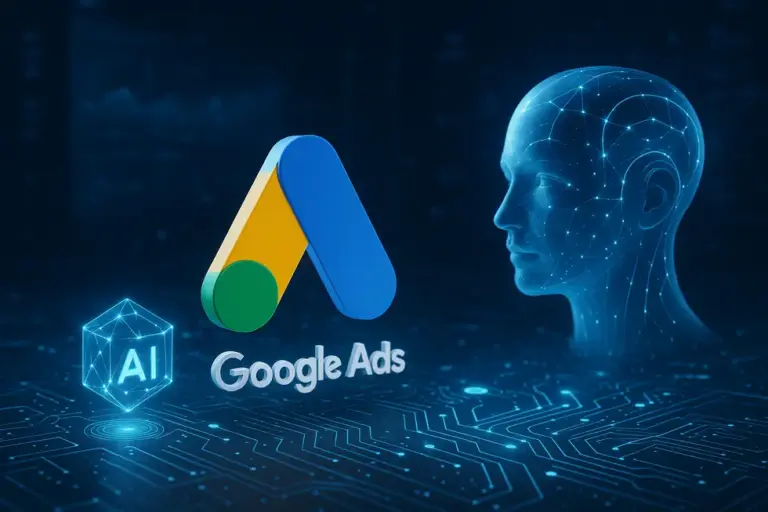Introduction
The digital commerce landscape is continually evolving, with artificial intelligence (AI) now stepping into the realm of financial transactions. At the forefront of this evolution is Google’s Agent Payment Protocol (AP2), an innovative technology that enables AI agents to execute secure payments on behalf of users. Designed with a focus on security, authorization, and accountability, AP2 promises to redefine how business transactions are conducted by leveraging advanced cryptographic frameworks. This article explores the technical standards behind AP2 and its growing industry adoption.
Technical Standards and Cryptographic Frameworks within Google Agent Payment Protocol

1. Cryptographic Mandates: Enhancing Secure Transactions in Google Agent Payment Protocol
In the burgeoning realm of automated agent transactions, the Google Agent Payments Protocol (AP2) plays a pivotal role by leveraging “mandates” as cryptographically signed digital contracts known as Verifiable Credentials (VCs). These mandates are instrumental in achieving secure and authorized payment capabilities for AI agents. Structured to prevent tampering, these VCs ensure that an agent’s payment initiation reflects the explicit, non-disputable consent of the user.
Key mandates within AP2 encompass the Intent Mandate, which secures the user’s preliminary authorization, capturing constraints such as budget limits and transaction conditions. This forms an auditable base before any purchase actions occur. In parallel, the Cart Mandate is established post-assembly of purchase specifics, requiring user approval and cryptographic signing, providing a verified record of the transaction specifics.
Utilizing robust digital signatures like ECDSA, these mandates are fortified against forgery, ensuring data integrity and accountability. They respond to compliance requirements such as Strong Customer Authentication (SCA) and integrate seamlessly with existing financial systems. With configurable time-to-live parameters and safeguards like hardware-backed key management, mandates reduce potential misuse risks. These components collectively create a secure environment enabling AI agents to conduct transactions with integrity and trust, marking a substantial advance in the payment protocol landscape source.
2. Ensuring Verifiable User Intent through Google’s Cryptographic Mandates in AP2
The Google Agent Payments Protocol (AP2) revolutionizes AI-driven commerce by securely capturing and executing user intent through cryptographic Mandates. These mandates act as digital contracts, providing a transparent chain of authorization for payments, thereby securing the ecosystem against fraud and enhancing trust across users and agents. At the heart of AP2’s security is its use of ECDSA signatures, which ensures each mandate remains tamper-proof and non-repudiable.
Mandates function on two primary levels: Intent Mandates, to crystallize a user’s initial shopping goals, and Cart Mandates, which lock in final approvals on price and content. This dual-layered approach ensures every transaction reflects the true user intent, verified cryptographically, mitigating unauthorized actions by the AI agent.
The protocol’s role-based architecture further delineates clear responsibilities among users, agents, and merchants, embedding accountability in every transaction. To safeguard against mandate spoofing or coercion, AP2 promotes hardware-backed key management and utilizes decentralized allowlists.
In a bid to support both human-present and autonomous transactions, AP2 allows agents to operate under pre-approved conditions with set time-to-live parameters. This flexibility aligns with W3C Verifiable Credentials standards, fostering an interoperable and future-proof payment ecosystem. Users can explore agentic AI applications for more insights into autonomous capabilities.
Ultimately, Google’s AP2 mandates are critical for securing AI transactions by cryptographically encoding user intentions, thereby enhancing trust and compliance across the AI-driven commerce landscape.
Industry Adoption and Compatibility of Google Agent Payment Protocol

1. Catalyzing Collaboration: Pilot Programs and Partnerships
Google’s Agent Payments Protocol (AP2) is revolutionizing the way transactions are conducted by enabling AI agents to make secure purchases on behalf of users. At the heart of this innovation are the pilot programs and partnerships established with over 60 prominent financial and technological companies such as Mastercard, American Express, and Coinbase. These collaborations are instrumental in ensuring that AP2 operates seamlessly across a variety of payment methods including credit cards, stablecoins, and real-time bank transfers.
Central to these pilot initiatives is the concept of explicit user intent mandates. These cryptographically signed directives are designed to prevent unauthorized transactions by enforcing precise constraints, such as spending limits that AI agents must comply with. This is crucial for mitigating risks like unauthorized expenditures or AI behavior anomalies—a topic explored extensively in discussions on agentic RAG applications.
Furthermore, AP2’s open-source approach paves the way for widespread innovation, inviting developers and partners to enhance the protocol. This openness is bolstered by cross-industry collaboration, spanning payment networks, cryptocurrency platforms, and AI-tech companies. Together, they forge a future-ready architecture prepared to integrate emerging technologies like push payments and digital currencies, thus ensuring that AP2 is not just built for today but is robust enough for tomorrow’s financial landscapes.
Every transaction under these partners’ programs generates a cryptographic audit trail, pivotal for dispute resolution and accountability. Ultimately, these initiatives are setting the foundation for a standardized ecosystem where AI agents act as trusted enablers of diverse economic transactions, shaping a new era of automated commerce. For more details on these transformative activities, see this Google Cloud Blog post.
2. Embracing Future Payment Innovations with Google Agent Payment Protocol
Google’s Agent Payments Protocol (AP2) stands as a beacon for futuristic payment trends, aiming to tackle the complexities associated with AI-driven transactions. Crafted in collaboration with over 60 industry titans like American Express, Mastercard, and PayPal, AP2 is designed to accommodate an array of payment types, from credit cards to stablecoins. By enhancing the Agent2Agent (A2A) and Model Context Protocol (MCP) standards, AP2 offers a robust, adaptable framework that ensures not only transaction security but also audibility and compliance across various digital platforms.
AP2 enables AI agents to autonomously execute transactions while addressing the nuances of AI-led payments, which demand elevated levels of authorization and accountability. Through partnerships and pilot programs, Google is on a transformative journey to refine AP2-compliant software, laying the groundwork for AI agents to securely manage complex economic activities, such as travel bookings that require seamless transactions across multiple service providers.
As this protocol evolves, it promises to assemble the necessary governance to make AI-driven commerce a viable reality. AP2’s development is strategic, ensuring compatibility with future payment methods like real-time bank transfers and digital currencies, thus embodying a vision where AI commerce operates with unparalleled trust and efficiency.
Final Thoughts
Google’s Agent Payment Protocol (AP2) is not just a step forward in AI-driven commerce but a leap towards a secure, accountable, and integrated future of digital transactions. By establishing a robust cryptographic framework and fostering industry collaboration, AP2 ensures that AI agents can operate with user-defined intent and accountability. With this framework, businesses stand on the verge of a new era where transactions are not only secure but also seamlessly aligned with the evolving digital landscape. Ready to elevate your business with cutting-edge automation? Contact AI Automation Pro Agency today and let our expert team guide you to streamlined success with n8n and AI-driven solutions!
Ready to elevate your business with cutting-edge automation? Contact AI Automation Pro Agency today and let our expert team guide you to streamlined success with n8n and AI-driven solutions!
About Us
AI Automation Pro Agency is a forward-thinking consulting firm specializing in n8n workflow automation and AI-driven solutions. Our team of experts is dedicated to empowering businesses by streamlining processes, reducing operational inefficiencies, and accelerating digital transformation. By leveraging the flexibility of the open-source n8n platform alongside advanced AI technologies, we deliver tailored strategies that drive innovation and unlock new growth opportunities. Whether you’re looking to automate routine tasks or integrate complex systems, Minh Duc TV provides the expert guidance you need to stay ahead in today’s rapidly evolving digital landscape.





